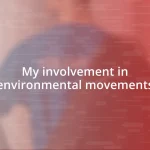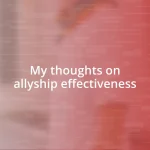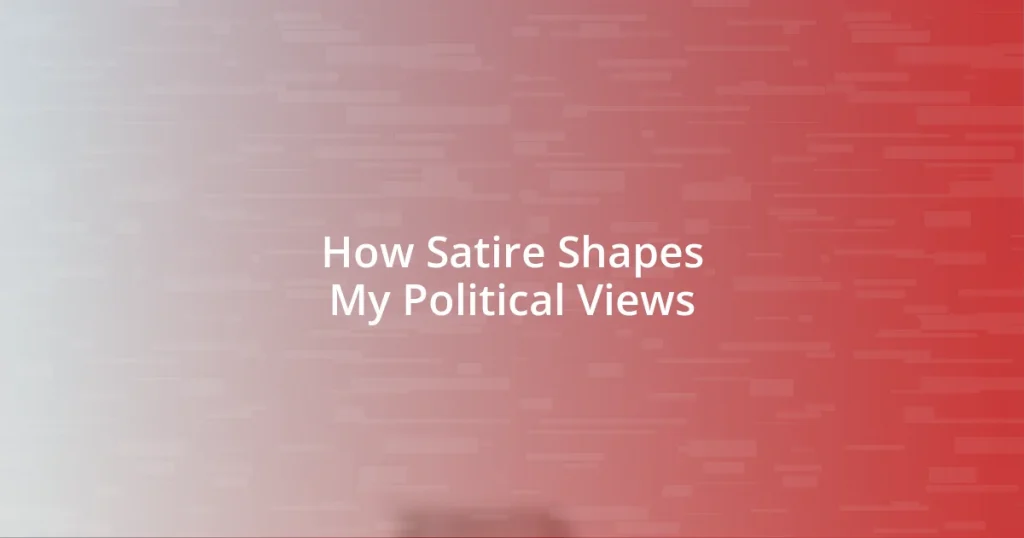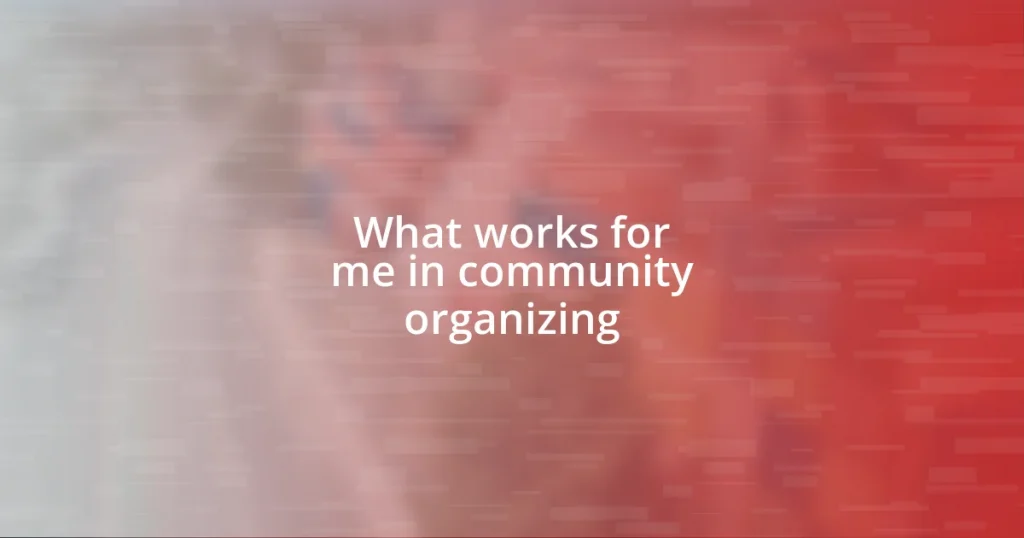Key takeaways:
- Satire serves as a mirror to society, provoking thought and challenging political beliefs through humor and absurdity.
- Influential satirical works, like “Saturday Night Live” and “Animal Farm,” transform complex political issues into engaging commentary that fosters awareness and critical discussions.
- Satire enhances critical thinking by encouraging audiences to question political rhetoric and explore underlying truths, motivating civic engagement and action.
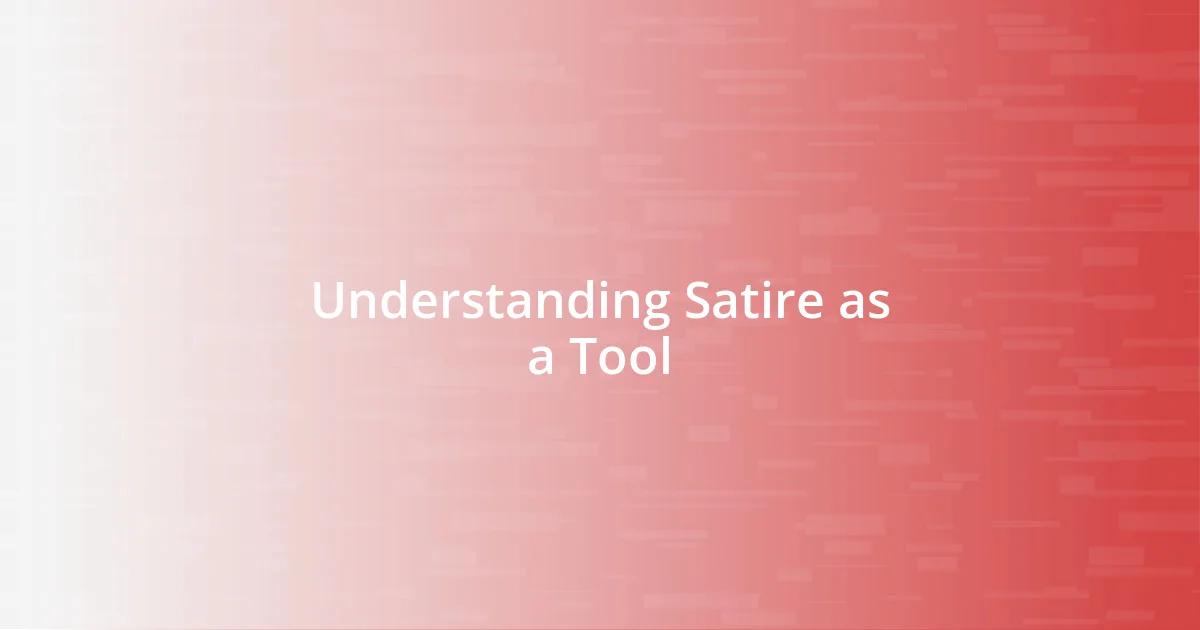
Understanding Satire as a Tool
Satire, at its core, serves as a mirror to society, reflecting our follies in a way that’s both humorous and poignant. I remember watching a satirical show that distilled complex political issues into a simple, yet absurd sketch, making me realize how absurd some policies really are. It left me questioning: if we can laugh at these issues, why aren’t we doing more to change them?
The beauty of satire lies in its ability to provoke thought while providing entertainment. There have been instances where I found myself chuckling at clever quips, only to pause and consider the deeper messages hidden beneath the humor. It’s this duality that can prompt us to reconsider our beliefs and practices – would we laugh if we truly understood the weight of those realities?
Using sarcasm and exaggeration, satire can illuminate truths that might otherwise go unnoticed. I often find myself reflecting on how a well-placed joke can cut through partisan conversations, sparking dialogue that could lead to understanding. Isn’t it fascinating that something so seemingly light-hearted can actually push us to confront our biases?

Analysis of Influential Satirical Works
Satirical works have often reshaped my understanding of political issues through their clever use of humor. For instance, shows like “Saturday Night Live” have a knack for translating current events into comedic skits that strip away complexities. I vividly recall a parody where political candidates were presented as exaggerated caricatures; it was laugh-out-loud funny, yet it made me question the sincerity of their messages—did they really believe what they were saying?
Another standout for me has been “The Onion,” which uses absurd headlines to capture the essence of societal flaws. A satirical piece I once read had me in stitches, yet it also hit home with insights about the ridiculousness of social media culture and its effects on political discourse. It was a moment of self-reflection; I realized how much of our engagement is often driven by spectacle rather than substance. Isn’t that the crux of satire? The ability to make us laugh while making us think.
A classic example I can’t overlook is George Orwell’s “Animal Farm.” This allegory uniquely utilizes satire to comment on political totalitarianism. While I appreciate its historical context, what struck me personally was the way it made me parallel our current political landscape with a fable. It served as a stark reminder of how power can corrupt and how complacency can lead us into similar traps. Don’t you think reflective storytelling like this is critical for fostering awareness and sparking change?
| Satirical Work | Main Theme |
|---|---|
| Saturday Night Live | Exaggeration of political candidates and societal norms |
| The Onion | Absurdity of modern social media culture and its political impacts |
| Animal Farm | Power dynamics and corruption presented through allegory |
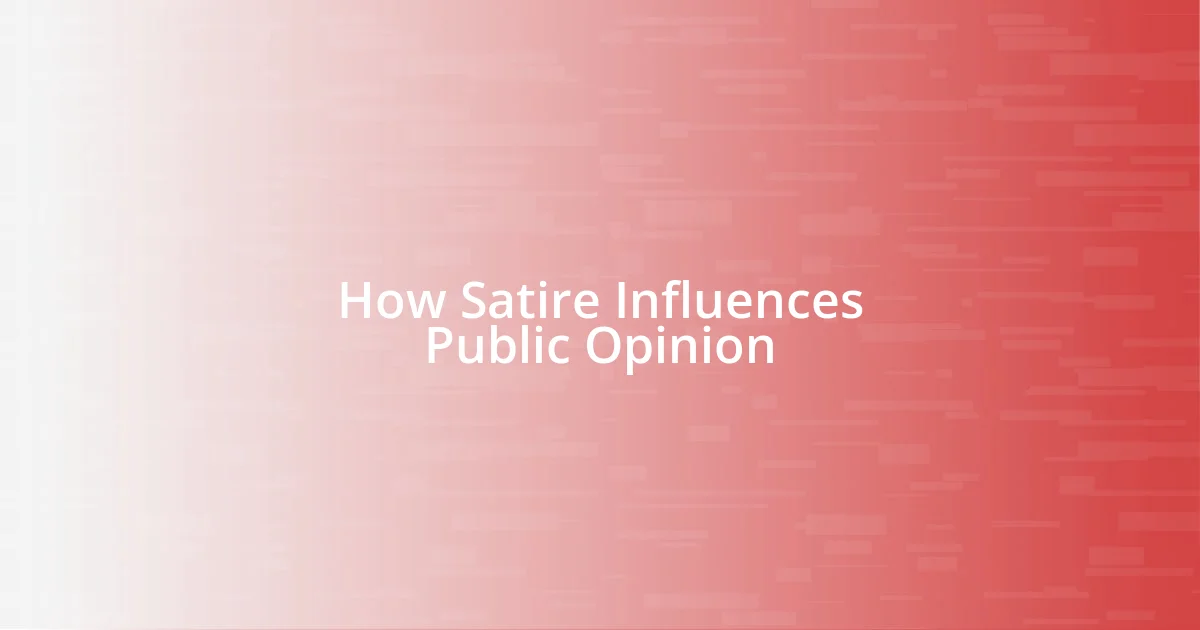
How Satire Influences Public Opinion
Satire plays a crucial role in shaping public opinion by encapsulating complex political ideas in a digestible form. I’ve often sat back and watched how a comedian’s take on a serious issue can turn it on its head, revealing the absurdity behind the headlines. During one memorable segment on a late-night show, the host dissected a controversial policy with wit and charisma; laughter filled the room, but the underlying truth struck a chord with the audience. It’s amazing how humor can disarm us, making it easier to digest uncomfortable realities.
- Satire simplifies complex issues, making them relatable and easier to understand.
- It invites audiences to question norms through humor, prompting conversations about important topics.
- The emotional connection laughter provides can lead to stronger engagement with political content.
In my experience, satire often motivates action by stirring our emotions. Watching friends share a humorous critique of a political figure on social media, I was struck by the collective laughter that turned into a discussion about civic responsibility. When we share a funny meme reflecting a serious issue, it’s not just about the laugh—it’s about building awareness and spurring change. In my opinion, these moments highlight a powerful dynamic; satire doesn’t just entertain—it can ignite a desire for dialogue and action among people who otherwise might remain passive.
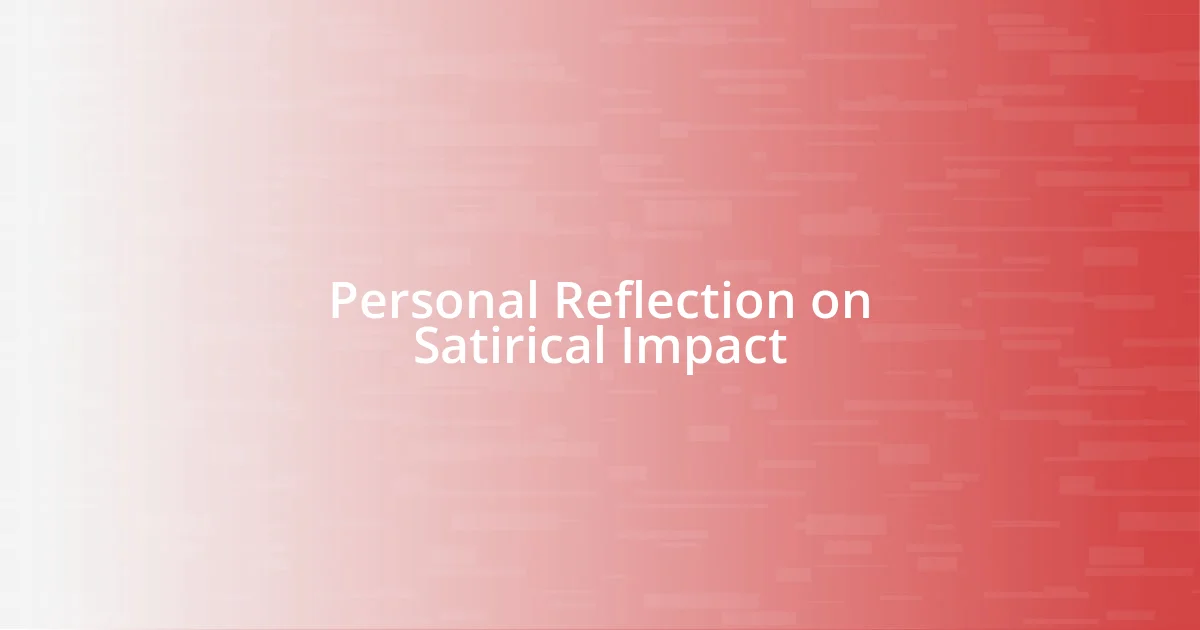
Personal Reflection on Satirical Impact
There’s something about satirical commentary that truly resonates with me on a personal level. I remember watching a satirical roast of a prominent political figure and finding myself torn between laughter and disbelief. How could someone exaggerate flaws we’d all seen, yet show us how absurd they really are? It made me realize that acknowledging the bizarre elements of our leaders can spark meaningful discussions about integrity and accountability.
I often reflect on a time I shared a satirical cartoon with friends that hilariously depicted the chaos of virtual town hall meetings during the pandemic. We all laughed, but it transformed into an intense conversation about the challenges of remote governance and engagement. It struck me how satire not only fosters camaraderie but also prompts us to engage critically with the very issues we’re facing. How could we ignore the underlying truths when they’re presented so cleverly?
As I navigate my political views, satirical content serves as a mirror reflecting my beliefs and contradictions. I recall a particularly poignant segment on a news satire program where they highlighted the stark contrast between political promises and reality. Watching it left me wondering: how often do we let rhetoric override accountability? That fusion of humor and critical insight remains a powerful tool for deepening my political understanding and encouraging a more engaged mindset.
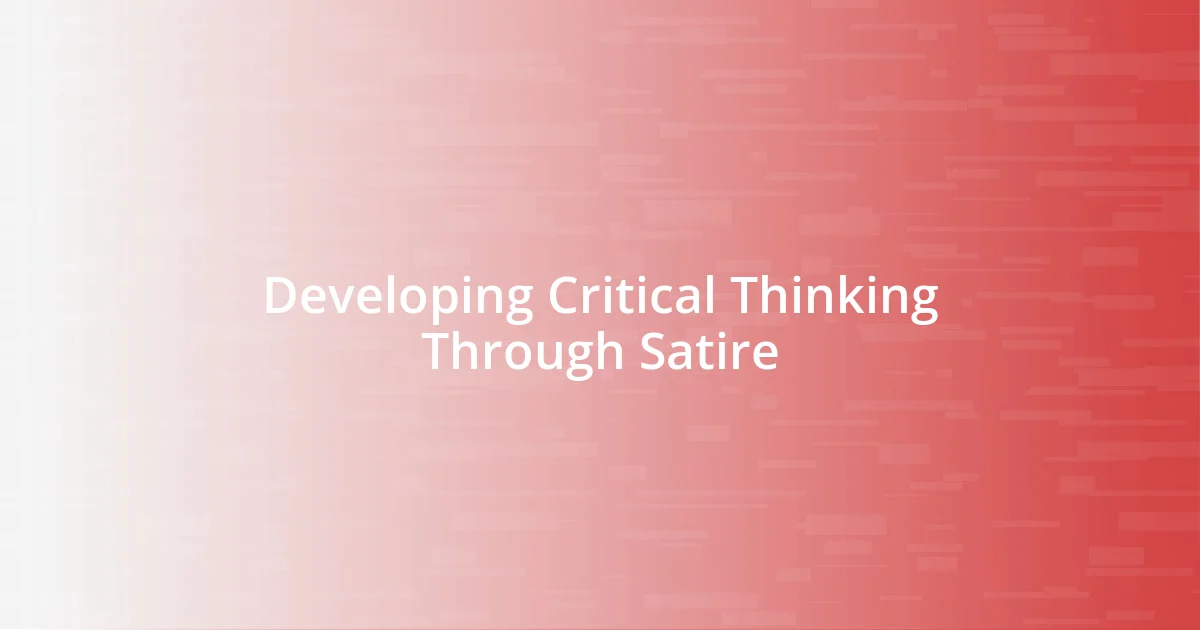
Developing Critical Thinking Through Satire
Satire has a remarkable way of sharpening our critical thinking skills. I remember watching a skit that humorously critiqued a new law, highlighting its ridiculous loopholes. As I laughed, I found myself analyzing the purpose of the law itself and questioning its impact on everyday citizens. Isn’t it fascinating how a few clever jokes can drive us to unpack the nuances of legislation we might otherwise overlook?
Engaging with satirical content often sparks my curiosity about the motivations behind political rhetoric. I recall sharing a witty political cartoon with a friend, which depicted two politicians arguing about trivial issues while the real problems remained unaddressed. We laughed, but it opened a door to a deeper discussion about how distraction is often used in politics. It made me wonder—how many issues do we unintentionally ignore because we’re caught up in the drama of debate?
Sometimes, satire feels like a gentle challenge to our preconceived notions. For example, I once watched a satirical monologue that pointed out an inconsistency in a politician’s stance on climate change. It struck me as not only entertaining but also illuminating, helping me see how laughter can provoke us to reassess our own views. Could it be that laughter is one of the most effective tools for encouraging us to think critically about our political landscape?






